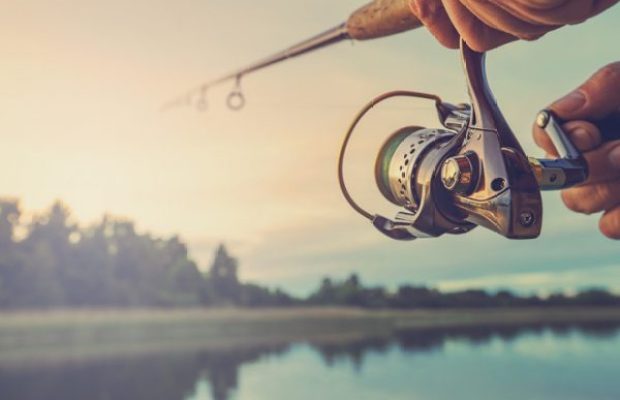This only applies to me insofar as I need to feed my family.
https://thepreppingguide.com/saltwa...g-gear-differences-every-prepper-should-know/
https://thepreppingguide.com/saltwa...g-gear-differences-every-prepper-should-know/
Saltwater vs. Freshwater Fishing Gear: Differences Every Prepper Should Know

Whether you are fishing for fun or survival, you’ll need to have the right fishing gear. Depending on your location, your gear will change. One of the biggest factors you need to know is whether you’ll be fishing in saltwater or freshwater. Not only will this affect the species you’ll find there, techniques, and other considerations like currents, boating or kayaking, and local laws, but it also affects your choice of gear.
While they may not seem so different, saltwater and freshwater are very different in their effects on gear. The salt in saltwater is corrosive, but the differences don’t stop there. Learn the major differences between saltwater and freshwater fishing and how it will affect your choice of gear.
Saltwater vs. Freshwater Fishing
There are a few important factors to consider in the difference between saltwater and freshwater fishing. First of all, salt water is corrosive. Most metals will be broken down by saltwater, and even by salty air in saltwater environments. When you’re purchasing gear, you should look for equipment that is specifically made for saltwater environments. Saltwater safe gear usually has a protective coating so that it won’t be destroyed by the water.
Another factor to consider is the currents when fishing in the ocean. Waves and currents will pull at your line and connected gear, so you need strong, durable gear that won’t break. Often, with saltwater fishing like surf fishing or deep sea fishing, you’ll be casting longer and deeper. This means that you’ll need strength in that regard as well.
Most fishing equipment is freshwater safe, so you really only need to make these considerations if you’re going saltwater fishing. Some fish like bass can be found in fresh and saltwater. If you’re fishing in both types of water, invest in a bass fishing rod and reel that is saltwater and freshwater safe. Learn how to choose the right gear for whatever waters you choose to explore.
Saltwater Fishing Rods
When choosing a saltwater fishing rod, the first factor to consider is the material of the rod. Most rods are made of either graphite or fiberglass. Fiberglass is generally stronger, while graphite is stiffer but also more sensitive.
You can choose which you prefer based on your style of fishing . You can also choose between spinning or baitcasting gear – many saltwater anglers prefer bait casting, but spinning rods and reels have gotten much stronger, so either works fine. The important part of the material is that it should have some protective coating to save it from salt damage.
Saltwater rods are usually also thicker and heavier. Since fish in the ocean are larger, you need bigger, tougher gear to pull them in. Saltwater rods are often also longer so that you can cast further, but depending on your style of fishing this may not be a necessity.
Saltwater Fishing Reels
Reels are probably the most sensitive piece of equipment, and if you were to only change one piece of equipment when switching to saltwater, it should be the reel. Fishing reels have a smooth retrieve because of tiny ball bearings within the reel. These ball bearings are made of metals, which we’ve mentioned will corrode in saltwater environments.
A saltwater fishing reel should be made with metal that has a protective coating, or a metal alloy that resists corrosion. The ball bearings should absolutely be protected – reel descriptions will mention that ball bearings are shielded if they are. Be sure to ask questions at the shop, or do thorough research online when choosing a saltwater reel. The bearings, gears, and drag systems should be sealed to prevent salt or saltwater from getting in.
Since saltwater fish are often bigger and stronger, you’ll also need a reel with a good drag strength so that it can handle fighting fish. Whether you use spinning or baitcasting gear, pick a reel that is strong and durable to withstand rough currents and strong fish.
Saltwater Line and Lures
Like rods and reels, fishing line for saltwater should also be strong. Saltwater lures should also be corrosion resistant, and they are typically bigger to target the bigger fish in saltwater settings. Since the lures are bigger and heavier, the line has to be able to support the weight, especially when long casting.
Braided line is typically preferred, but mono and fluorocarbon can work well too. A shock leader is a stronger piece of line connecting the main line to the tackle. It is used to keep line from snapping when you cast. Fluorocarbon makes a great shock leader, so it’s recommended for casting heavy lures.
Saltwater vs. Freshwater Gear Cost
If you want quality fishing gear that will last and be dependable when it may be your only source of food, you may have to invest in some pricier equipment. This is especially true for saltwater gear. Since it can corrode or break so easily in the harsh saltwater conditions, it’s worth shelling out extra money for a top-notch rod, reel, and other gear. Ultimately, you’ll save money since high quality gear is more likely to last.


















































